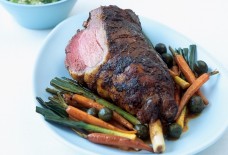Halal Cosmetics Scent the Sweet Smell of Success
At a luxury spa in Dubai, women wait for their weekend beauty treat, their colourful eye make-up contrasting with their black robes.
The mineral-based skincare range used at the spa is free of pork and alcohol derivatives. Supplier Charlotte Proudman hopes to register it as compliant with sharia, and so tap into a growing trend for “halal cosmetics” among the world’s estimated 1.6 billion Muslims.
The word halal, Arabic for permissible, describes meat slaughtered and prepared in line with Islamic law. Halal beauty products, which make up $500m (£313m) of the $2trn global halal market, are made using plants and minerals rather than the alcohol and pork ingredients that are banned in Islam but often found in cosmetics. The appeal of halal cosmetics mirrors a global trend for ethical beauty products.
New-York based Islamic scholar Taha Abdul-Basser said: “It is part of the permissibility of cosmetics that they be safe. Harmful substances would be impermissible. Substances that are tested on animals in such a way as to cause unnecessary pain or that pollute the environment would be avoided by religious, educated and conscientious consumers. There are significant overlaps between the halal consumer and the ethical and environmentally conscious consumer.”
Morocco’s Amys Group is another start-up that smells opportunity in the exotic fragrances of halal beauty. Its range is made in the Atlas mountains and includes exfoliating scrubs and hammam oils. “The halal business is at the level where the Islamic banks were 20 years ago,” said Walid Mougou, general manager at Amys Group. “It has double-digit growth every year and this trend will not go down at least during the next 10 years.”
Amys Group plans to expand in the wealthy Gulf Arab region, Malaysia, Britain, the United States, France and Japan in the next three years, and is targeting 20 per cent annual profit growth over the next five years. Those are ambitious targets. The total value of cosmetic-related sales in the Middle East reached $2.1bn in 2009.
However, the lack of a unified global halal certification body could restrict the growth of halal cosmetics. The products are usually approved by local, regional or national certification agencies, but there is little to stop some producers from unofficially labelling their products halal.
There are 138 different certification bodies around the world, according to the International Halal Integrity Alliance, a group based in Kuala Lumpur. Its chief executive, Darhim Hashim, said: “It’s very hard to come up with a global standard as there is no single authority. The Muslim world itself is fragmented and there are differences in interpretation of the holy text. If we are lucky, we might one day be able to live with three or four standards only.”
That leads to the next major problem: different views on whether it is acceptable for Muslims to beautify themselves in the first place. “It is actually recommended in Islam that both men and women do some kind of improvement to their appearance in order to look nice for their spouse,” said Muddassir Siddiqui, a sharia scholar and partner at Denton Wilde Sapte law practice.
Despite the potential pitfalls, multinational firms are also tuning in to the potential for halal cosmetics. Colgate-Palmolive Co already makes toothpaste and mouthwash with a halal stamp.
Martina Fuchs in Dubai
Reuters


